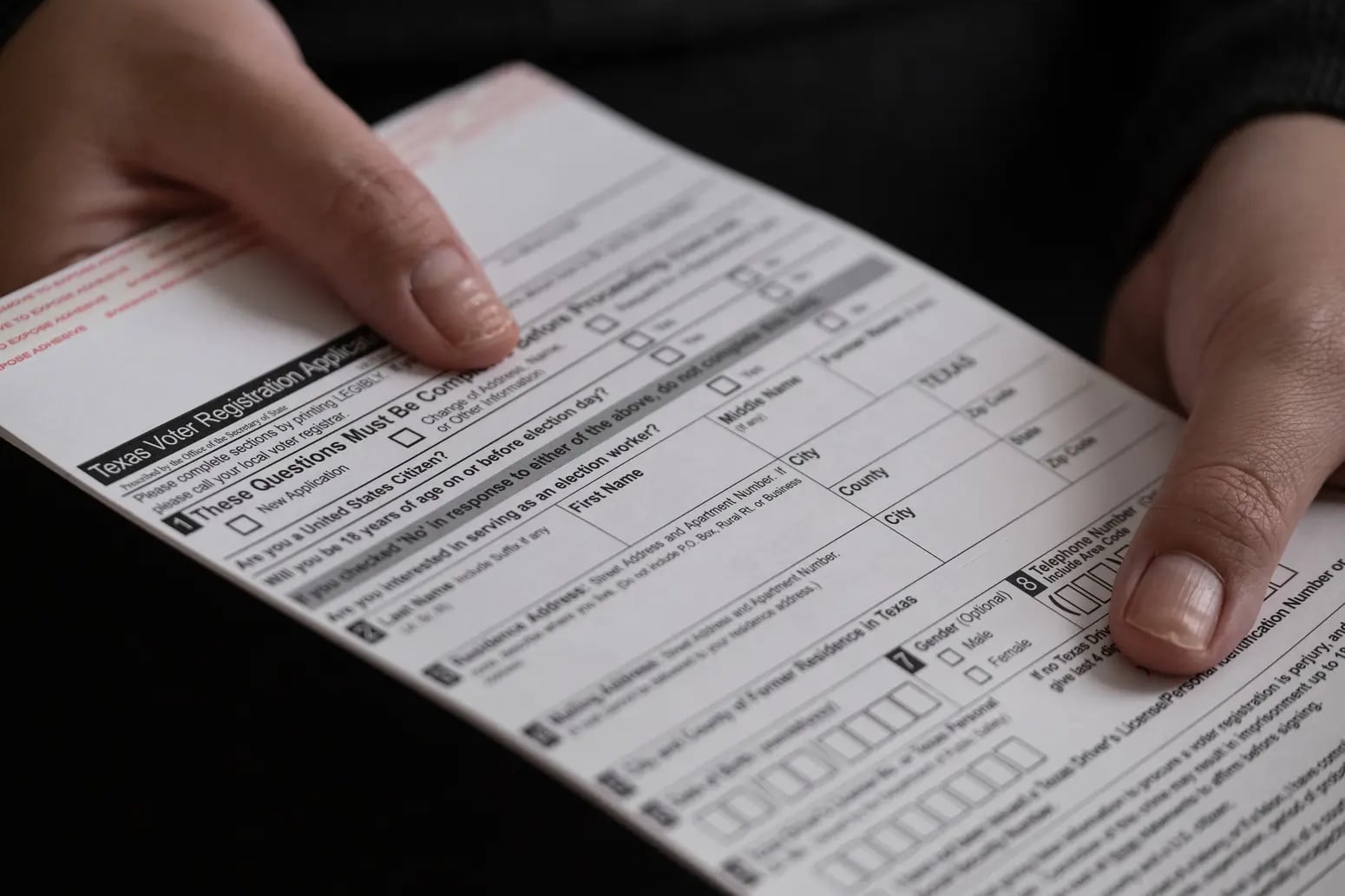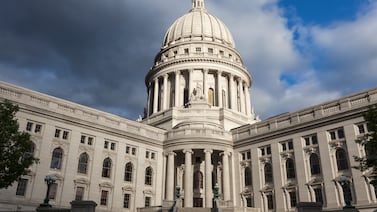This story was first published by The Texas Tribune, a nonprofit, nonpartisan media organization that informs Texans — and engages with them — about public policy, politics, government and statewide issues. Sign up for the We the Texans newsletter to receive twice-monthly updates on The Tribune’s year-long initiative dedicated to boosting civic engagement and chronicling how democracy is experienced in Texas.
Texas Attorney General Ken Paxton is suing Travis County to block an effort to register more voters before the November election.
Paxton’s lawsuit follows a decision by the Travis County commissioners to hire Civic Government Solutions to contact non-registered county residents and encourage them to register. Travis County includes Austin.
“We just thought it was nice thing to do,” Ann Howard, a Travis County commissioner, said at The Texas Tribune Festival shortly after news of the lawsuit was made public.
Paxton, in a statement, called the decision illegal.
“Travis County has blatantly violated Texas law by paying partisan actors to conduct unlawful identification efforts to track down people who are not registered to vote,” Paxton said. “Programs like this invite fraud and reduce public trust in our elections. We will stop them and any other county considering such programs.”
A spokesperson for the county said the commissioners stood by their decision.
“Travis County is committed to encouraging voter participation and we are proud of our outreach efforts that achieve higher voter registration numbers,” said spokesperson Hector Nieto. “We remain steadfast in our responsibility to uphold the integrity of the voter registration process while ensuring that every eligible person has the opportunity to exercise their right to vote. It is disappointing that any statewide elected official would prefer to sow distrust and discourage participation in the electoral process.”
Paxton took a similar step earlier this week when he sued Bexar County, which includes San Antonio, the state’s second most populous city. And last month, Harris County, the state’s most populous, stopped short of taking similar steps.
Jeremy Smith, the CEO of Civic Government Solutions, denied being a partisan organization, a charge made by Paxton.
“The company is not partisan at all, the company’s bylaws and mission and fiduciary responsibilities are all expressly nonpartisan,” Smith told The Texas Tribune Friday. “All of our contracts, 100% of them, are nonpartisan. It is written in. We are under restrictions and obligations to prove that and maintain that and provide that data for accountability back to all of our clients.”
”As a general matter, these are purely nonpartisan efforts.”
Harris, Bexar, and Travis counties are all Democratic strongholds in a reliably Republican state. The lawsuits are part of a series of steps Paxton and Gov. Greg Abbott — both Republicans — have taken in recent weeks to “safeguard Texans’ sacred right to vote.” Late last month, Abbott announced the state had removed roughly a million people from its voter rolls since he signed a legislative overhaul of election laws in 2021. However, election experts cautioned that both federal and state law already required regular voter roll maintenance, and that Abbott’s comments could be used to undermine trust in elections.
Speaking at The Texas Tribune Festival, chief executives of three of the state’s biggest counties defended their actions to register voters.
“Paxton does this every time,” Travis County Judge Andy Brown said about the attorney general’s suit against the county’s efforts to register voters ahead of the election. Brown added that county officials should do all they can to register voters — especially in a state where people can not register to vote online.
Bexar County Judge Peter Sakai said he decided to implement the voter registration program because voter turnout has been low in the area he serves, which includes the city of San Antonio.
“I want to make it clear that this effort is not touching the voting ballot. We’re not touching the election process. All we want to do is register voters,” he said. Sakai said he is ready to defend the county’s position to go forward with the voter registration program adding “we are on legal ground.”
Paxton had threatened to also sue Harris County, but Judge Lina Hidalgo said that the county might not go forward with the program anymore because time is running out to register voters.
“We’d have to see, would it even be possible for folks to get registered before the deadline?” she said. The deadline to register to vote is Oct. 7.
Natalia Contreras and Berenice Garcia contributed.
The Texas Tribune is a member-supported, nonpartisan newsroom informing and engaging Texans on state politics and policy. Learn more at texastribune.org.




